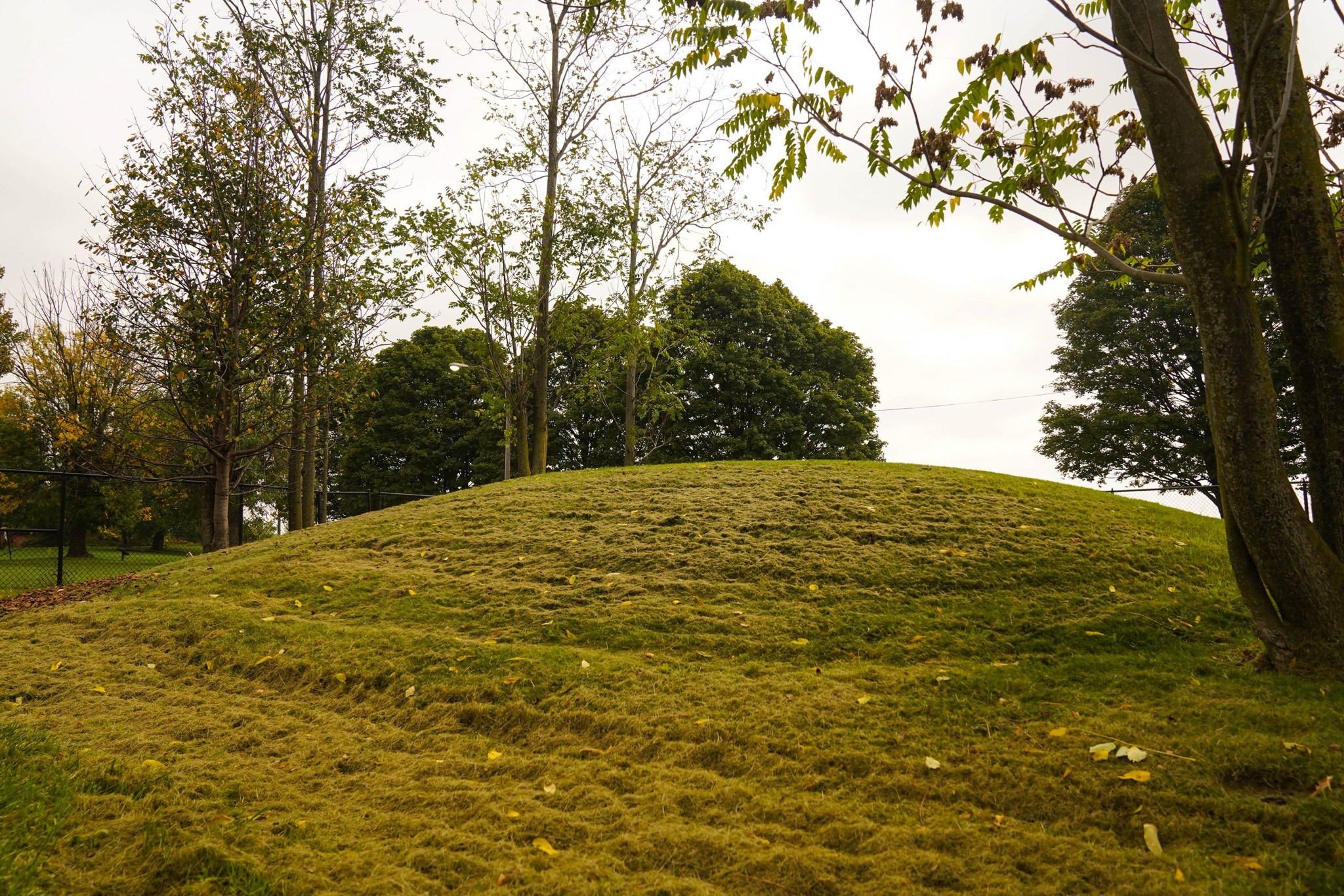
- Details
- By Neely Bardwell
Last week in Detroit, Michigan, legal rights to the Fort Wayne Burial Mound were returned to the rightful caretakers, the Nottawaseppi Huron Band of the Potawatomi (NHBP).
The Fort Wayne Mound is located on the eastern side of the state, where the original homelands of the ancestors of NHBP citizens are located. The Mound was originally part of a bigger group of mounds called the Springwell Mound Group, and is one of the last remaining undisturbed and intact. The City Council unanimously approved the deed transfer giving the 0.58-acre site to NHBP for $1.
The fight to acquire legal ownership of the mound started twelve years ago when previous NHBP Tribal Historic Preservation Officer, Jeff Chivis brought the idea of a deed transfer to the Tribe’s attention and reached out to the City of Detroit and Historic Fort Wayne staff.
“I thought it would be amazing if we could reclaim our aboriginal territory in Detroit, further strengthen our ties to this place, and assume the responsibility of protecting this sacred place and our Ancestors,” said Chivis in a statement sent to Native News Online.
The Fort Wayne Burial Mounds are the resting place of NHBP Ancestors, the Detroit Potawatomi, who for many generations thrived on the banks of The Detroit River until their relocation to the Huron River Valley. To the tribe, this deed transfer signifies the protection of this sacred site, the assurance of respect for its cultural significance, and a step forward in correcting years of injustice towards Indigenous people.
NHBP Chairwoman Dorie Rios explained that although several different nations were located in that area, NHBP ancestors were the last ones to be removed from Detroit.
“Those are our ancestors, and without those ancestors, we wouldn't be here, in the present day, still governing, still practicing our culture. It's very important, as original caretakers of this land, that we follow through, get that deed transferred, as we did, and make sure that that area is protected,” said Rios. “I think in modern day, when you talk of land associated with tribes, it's always for economic development, and that is why we needed to repossess that land, reclaim that land, ensuring that we were going to forever protect that property.”
In 2023, human remains were found as an Army Corps contractor worked to install a new waterline in the vicinity of Historic Fort Wayne. The contractor immediately stopped work and consulted an on-site archaeologist. A visual analysis of the remains was conducted by the Army Corps of Engineers, and the remains were determined to have come from a single individual and predate the construction of Historic Fort Wayne in 1840.
Chairwoman Rios told Native News Online the tribe is in consultation with the Army currently regarding the found remains.
More Stories Like This
Navajo Committee Advances $84M Transportation Improvement PlanNCAI Passes Two Emergency Resolutions on Immigration Enforcement Activities
Chickasaw Lighthorse Police Officer named Indian Country Law Enforcement Officer of the Year
Indian Gaming Association Rallies Broad Coalition Against Sports Event Contracts It Calls Illegal Threat to Tribal Sovereignty
Navajo Resources and Development Committee Issues Notice on Livestock Inspection Requirements
Help us defend tribal sovereignty.
At Native News Online, our mission is rooted in telling the stories that strengthen sovereignty and uplift Indigenous voices — not just at year’s end, but every single day.
Because of your generosity last year, we were able to keep our reporters on the ground in tribal communities, at national gatherings and in the halls of Congress — covering the issues that matter most to Indian Country: sovereignty, culture, education, health and economic opportunity.
That support sustained us through a tough year in 2025. Now, as we look to the year ahead, we need your help right now to ensure warrior journalism remains strong — reporting that defends tribal sovereignty, amplifies Native truth, and holds power accountable.
 The stakes couldn't be higher. Your support keeps Native voices heard, Native stories told and Native sovereignty defended.
The stakes couldn't be higher. Your support keeps Native voices heard, Native stories told and Native sovereignty defended.
Stand with Warrior Journalism today.
Levi Rickert (Potawatomi), Editor & Publisher


